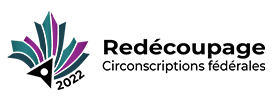Commentaire 79 – commentaires et rétroaction
Les documents ci-dessous sont affichés dans la langue officielle d'origine tels qu'ils ont été reçus.
Retour aux commentaires et rétroaction du public
The District of Kenora Unincorporated Areas Ratepayers Association (DoKURA)
Submission from DoKURA to federal electoral boundaries commission for ontario
We have reviewed the Federal Electoral Boundaries Commission for Ontario ("Commission") release regarding a proposed redistribution of federal riding boundaries. DoKURA is a Non-Profit Corporation, incorporated under the laws of the Province of Ontario. (DoKURA is short for District of Kenora Unincorporated Areas Ratepayers Association) It was formed 25 years ago (1996) to represent the interests of the over 25,000 permanent and seasonal residents who reside outside the organized municipalities and First Nation communities in the southern portion of the Kenora District of Northwestern Ontario.
DoKURA is of the opinion that the proposed changes are not in the best interests of people living in Northern Ontario. We note that this proposal has been criticized as impractical, unmanageable and unfair for northern communities by both current and former MPs and MPPs from across Northern Ontario, representing all three major political parties. Northern Ontario would lose a seat in the House of Commons under the proposed redistribution. The 10 current seats need to be preserved to ensure appropriate representation for Northern Ontario in the House of Commons.
The proposed distribution would combine most of the population of the existing Kenora District and Thunder Bay—Rainy River District into Kenora—Thunder Bay—Rainy River and would create the new Electoral District of Kiiwetinoong—Mushkegowuk, a large and sparsely populated far north riding spanning from the Manitoba to Quebec border. The sheer size of this riding is unmanageable due to the lack of road access to most communities which would make it extremely difficult for an MP to effectively represent the diverse needs of these communities.
Combining most of the existing Kenora and Thunder Bay—Rainy River ridings will further erode effective representation for the smaller centres and rural and outlying communities, particularly when such vast rural areas are placed in a District with a large urban population like the City of Thunder Bay. This fails to recognize the economic, historic, demographic and cultural distinctions across Northwestern Ontario and the separation of interests between the City of Thunder Bay and many of the other, smaller communities in the region. We believe that the Kenora and Rainy River districts are in a distinct economic region from Thunder Bay, and these districts generally fall into separate Indigenous treaty territories. Northern Ontario largely relies on resources for economic development. This, in turn, requires consultation and local engagement to ensure that business projects are good for the land and people in the area they will affect. The Member of Parliament is part of the process. We should not have enlarged boundaries where this connection is stretched too much.
The proposal separates communities of similar interest, need, and economy from one another. For example, by placing communities such as Red Lake, Ear Falls and Sioux Lookout in a separate District from those in the Kenora, Dryden, and Fort Frances areas, by placing small unincorporated communities such as Minaki and Redditt into the Kiiwetinoong-Muchkegowuk District when they rely on the city of Kenora as a hub community and by unnecessarily separating Treaty #3 First Nations from one another across electoral boundaries.
We are of the view that the Commission should recommend that "exceptional circumstances" should apply to all of Northern Ontario to recognize the geographic, economic and social diversity of the area. We see a specific need for exceptional circumstances to apply for the far north and for the combined Kenora-Rainy River Districts. Effective representation for Northern Ontario requires that travel times, Indigenous territorial boundaries, community history, provincial boundaries, and economic regions be reflected when considering changes to federal electoral boundaries. We would support moving the boundary for the Kiiwetinoong-Mushkegowuk District further north so that communities such as Red Lake, Ear Falls, Sioux Lookout, Minaki and Redditt are more appropriately included in the Kenora-Rainy River District. The Kenora District Services Board serves all nine communities and the unincorporated area within the Kenora District and we believe that all of this territory should be located within a single District.
